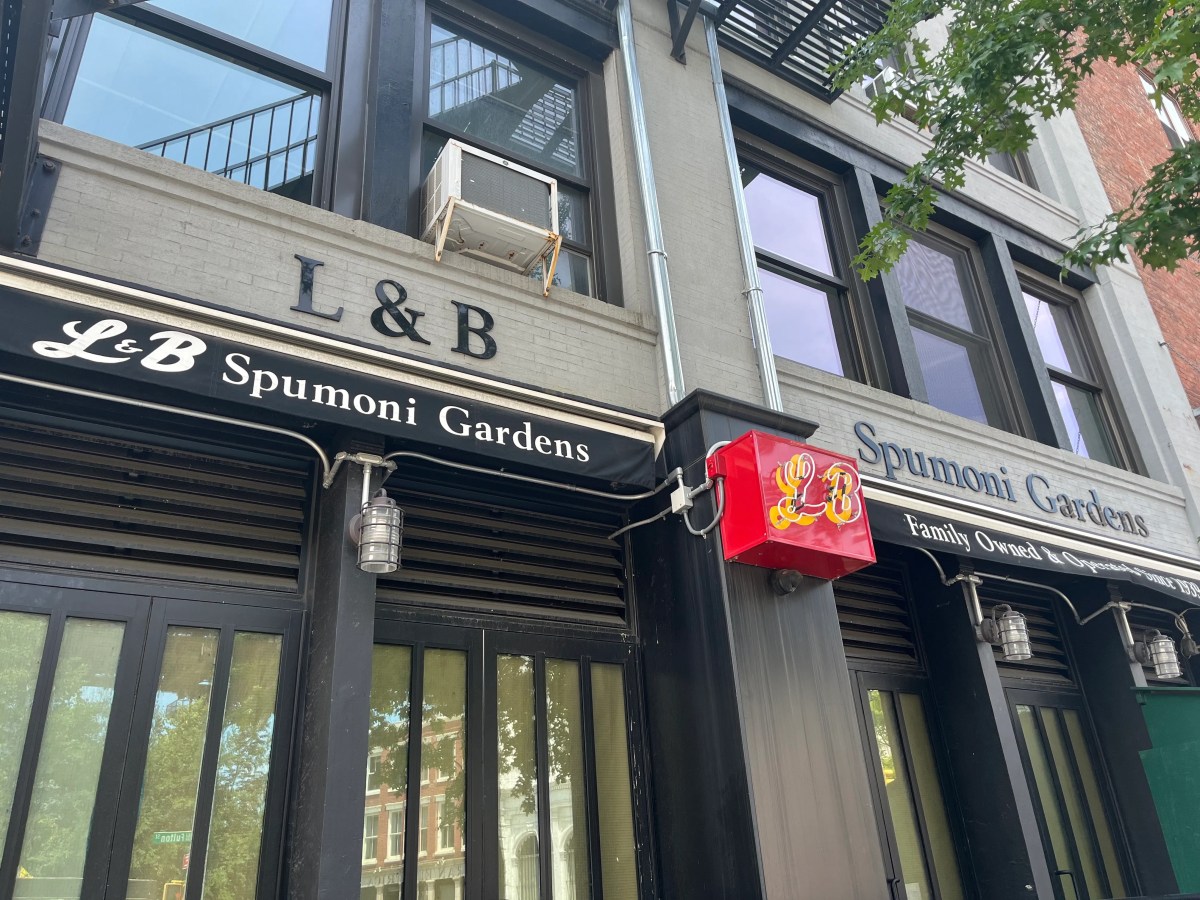By JERRY TALLMER
Russian and Korean troupes come for the 5th annual fest
Firs is an old, old half-deaf manservant who mumbles and fumbles his way through “The Cherry Orchard” — a person of very little consequence, except, of course, to Anton Chekhov, who was interested in everybody who ever lived and brought several hundreds of them to imperishable life on stage or within the pages of stories long and short.
There is one other person who was and is interested in Firs. She is Sonoko Kawahara, who was a year or two behind Adam Melnick as a late-1980s graduate student in theater directing at the Columbia University School of the Arts. She has dared to re-imagine “The Cherry Orchard” from the viewpoint of old Firs, starting with the thunk-thunk of the axe in the final moments of the original.
“The Cherry Orchard: Firs’ Dream,” written and directed by Sonoko Kawahara, opens the 5th Annual Chekhov Now Festival, October 27, at East 4th Street’s Connelly Theatre. As with all other elements of the festival, it will be repeated five or six times before the close of events on November 21.
“This year,” says 38-year-old Festival artistic director Adam Melnick, who with fellow Columbia graduate student Hyoung Taek-Limb started Chekhov Now back in 1999, “we’ve put together a really fantastic series, the best we can make it with our resources. And this year we’ve brought in three foreign groups.”
They are:
The Kamernaya Szent (which means: small stage) from Lobnya, a town near to Moscow, in a compilation of Chekhov stories “all mushed together,” says Melnick, who has directed in Russia and been to the Chekhov estate at Melekhova. The performance is in Russian “but you can follow it easily, it’s so clear.”
The Teatat Dzinot of Benes, Macedonia, which comes here with “The Proposal,” a/k/a “The Forced Marriage,” a comedy about a shotgun wedding. The performance is in Macedonian.
The Seoul Factory of the Performing Arts, in a production of “The Three Sisters” that incorporates Grotowski yoga and Korean masks. The adaptation is in Korean and English; the director is Melnick’s former classmate and co-founder Hyoung Taek-Limb, now a professor at Seoul University.
“Then, from this side of the ocean, some interesting people.” Among them:
Off-Broadway’s prolific and insightful Carl Forsman, who directs Keith Reddin’s imagined meeting between Elena, the indolent beauty of Chekhov’s “Uncle Vanya,” and Semyon, from Mihail Bulgakov’s “Black Snow.” The encounter takes place in the Louvre before a painting of “David and Bathsheba,” which is likewise the title of Reddin’s one-acter.
Cusi Cram, who has written a prelude to “The Cherry Orchard” and called it “Anya in Paris.” The director is the Atlantic Theater’s Christian Parker.
Cynthia Croot of Tinderbox Theater, whose one-woman “A Teacup Full of Vodka” is an examination “of death, dying, and rummage sales” drawn from several Chekhov plays and stories.
Jay Sheib, who directs an athletic “In This Is the End of Sleeping,” based on an unfinished Chekhov fragment called “Fatherlessness.”
Then there is Adam Melnick himself, who this year at the festival directs his LITE (Laboratory for International Theatre Exchange) Company in Judy theCohen’s adaptation of Chekhov’s “The Bet” — “a very short story,” says Melnick, “that’s maybe too short.”
There is also Rosary O’Neill’s “Uncle Victor” — “Uncle Vanya” set in turn-of-century Louisiana — and there’s Brian Roberts’s stripped-down “3 Sisters Redux,” which, in the interest of poetic focus on “the nature of family and sisterhood,” knocks everyone out of that Chekhov masterpiece except, well, the three sisters.
“We began Chekhov Now the first year at the Access Theater, a tiny place six flights up in Lower Manhattan. Each year we’ve done less and less [in numbers of productions] but,” says Melnick, “better quality I think.”
“Now it’s pull out all the stops. Make or break. And unlike some festivals, we pay people money — not much, but something. Seed money. And NYSCA [New York Sate Council on the Arts] has been very generous.
“Last year we drew 2,000 in audience. We need a little bit more box office, and a little bit more attention from the press. Basically we want some energy from the outside world. Ten to 20 percent would be fine. Well, let’s say 20 to 30 percent.”
There’s no “Seagull” in this year’s Chekhov Now, even though Melnick, like some other acolytes — you’re looking at one — considers it Chekhov’s, and the world’s, “transcendent” play.
“There’s something operating there that’s unbelievable,” says the Chekhov Now co-creator. Someday, he says, he’s going to direct it. Someday . . . someday. Meanwhile . . . Chekhov NOW!







































